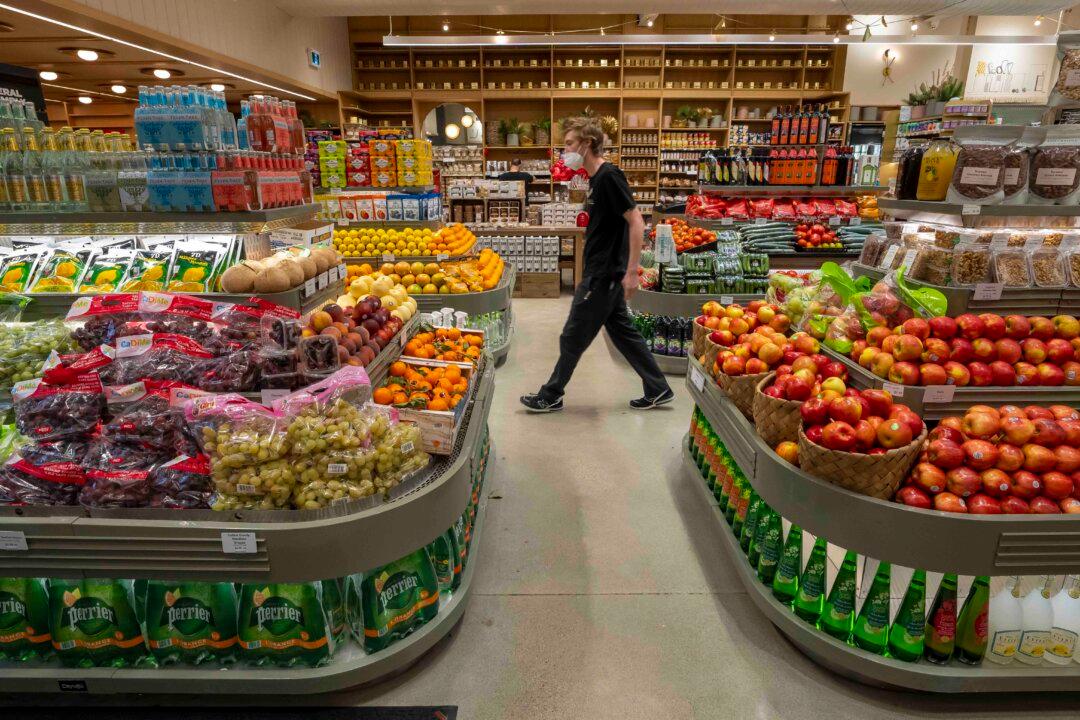Canadians are expecting to suffer from high interest rates and struggling finances for several years, according to a new report issued by the federal government.
“Research on the State of the Economy,” a Finance Department report released in April 2023, said the data indicates Canadians are “experiencing sticker-stock when it comes to the cost of day-to-day items.” Most said they expected the price for staples such as groceries and gasoline to keep rising and perhaps become unaffordable.
Finance Canada commissioned survey company Environics Research Group at a cost of $279,189.10 to ask adult Canadians their thoughts on the economy, inflation, financial stressors, housing, and other topics in a series of 10 online focus groups in September and October 2022. Environics also conducted an online survey with 2,007 adults between Sept. 23 and Oct. 4, 2022 to obtain data.
According to the report, which was reported by Blacklock’s Reporter, most Canadians are pessimistic and concerned about the economy. Participants used words such as “scary,” “struggling,” “challenging,” and “expensive.”
Thirty-seven percent of participants felt it would be “at least a few years” before Canadians see relief when it comes to inflation and interest rates. Six percent of those surveyed felt the situation was permanent.
Those who were surveyed said they felt “uncertain and unhopeful about Canada’s current economic state and concerned about what the future will look like.”
“There was a mentality of having to ‘ride it out,’ of things getting worse before they [get] better,” said the report.
Only half of Canadians said their own personal financial situation was positive, while 82 percent said the rising cost of living was a moderate source of stress. Four in ten said it was a “major source of stress,” according to the report.
Necessities
Participants felt groceries were harder to afford. Eight in ten Canadians had a negative perception of the current cost of groceries, while three-quarters gave a negative rating to the current price of gasoline. More than 70 percent were concerned with the cost of groceries.
“Participants spoke of using coupons, eating out less, changing eating habits, and buying in bulk,” said the report.
Other Canadians said they were “driving less and being efficient with trips, buying used instead of new, less discretionary spending in general, acquiring additional jobs, delaying purchases, and accumulating debt.”
Canadians surveyed attributed the causes of inflation to COVID-related supply chain issues and scarcity of goods. Others said an issue was “corporate greed and the idea that companies are trying to recuperate their losses from COVID-19, using inflation as an excuse to increase their prices,” according to the report.
“Some felt inflation had been caused by too much government spending during the pandemic and a perception that the Bank of Canada had printed too much money,” it said, while others said global issues, like the Ukraine conflict, were a contributing factor.
“There was little awareness of new federal government initiatives announced that could make life more affordable,” said the report. Some participants suggested the government could lower income or sales taxes, reduce or eliminate the carbon tax, or cap the price on essential goods.
Of those surveyed, 31 percent were worried about whether their “kids will be able to afford a place to live when they are older.” Another 21 percent were worried about “the impact of Canada’s national debt on our kids.”
“Housing is no longer primarily a big city or an Ontario and BC concern. It is now a huge issue in all parts of the country,” the report indicated. It said that more than eight in ten Canadians said it is very difficult for people to buy a house in the current economic climate, and seven in ten said the federal government has a responsibility to address the lack of affordable housing in the country.





